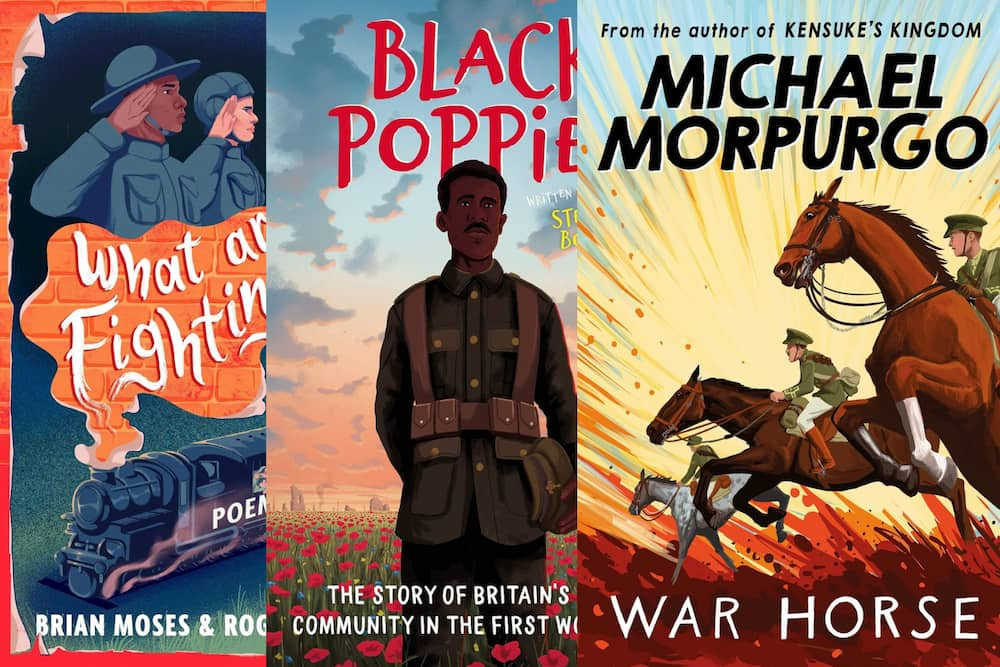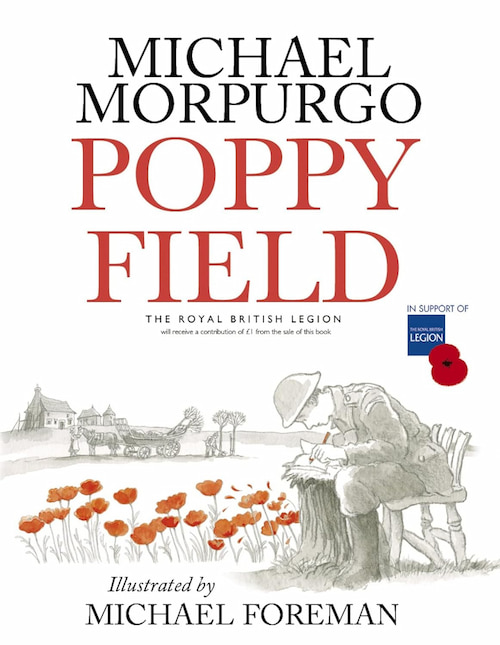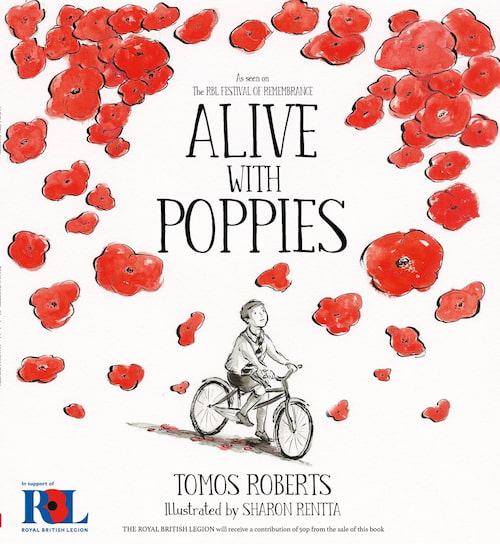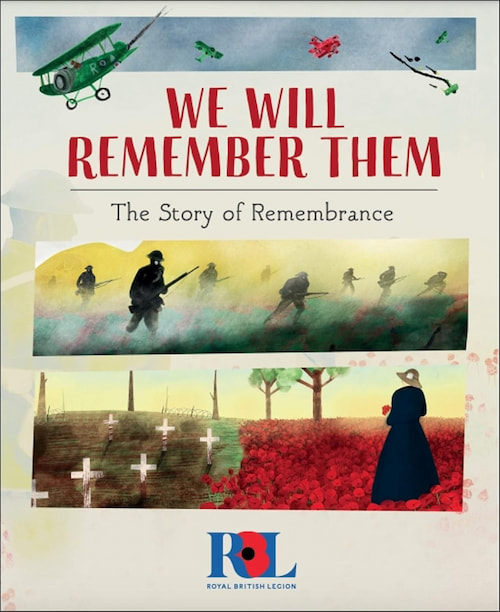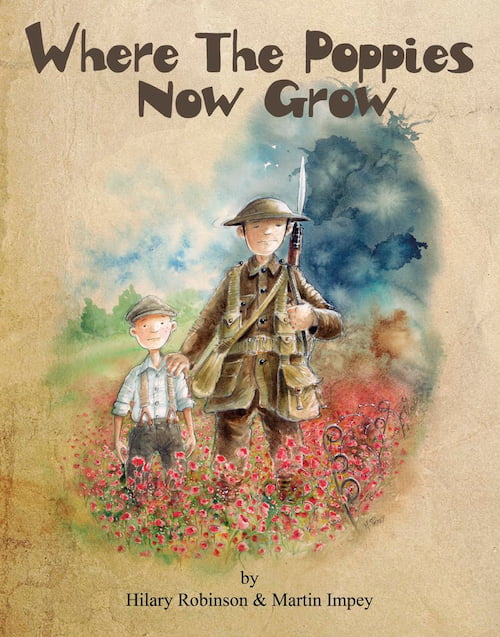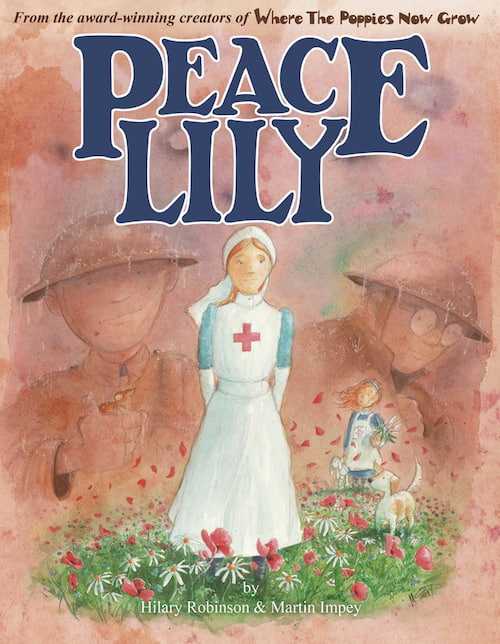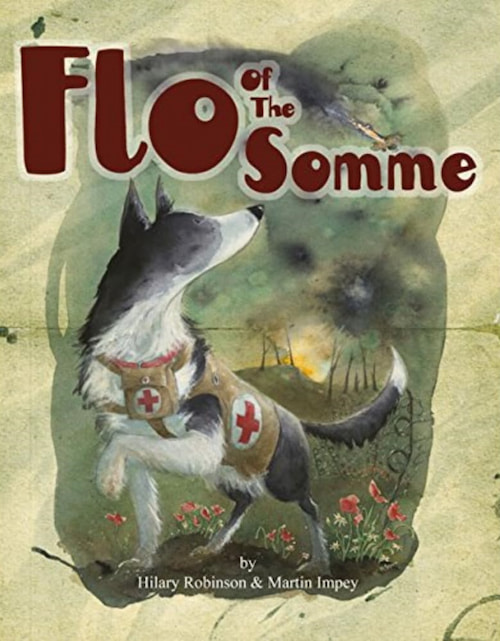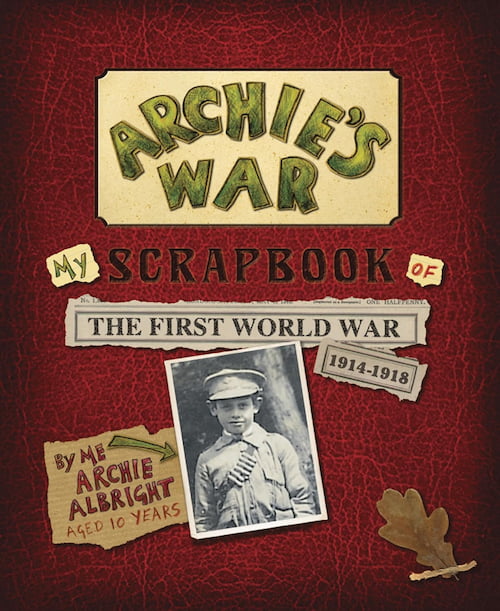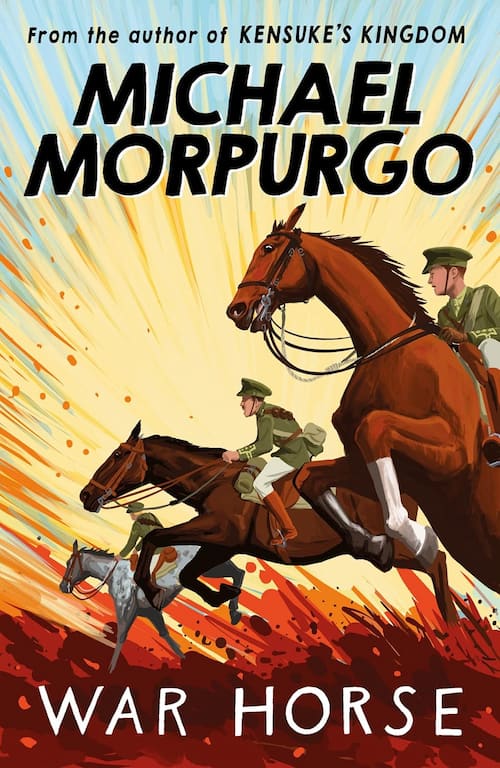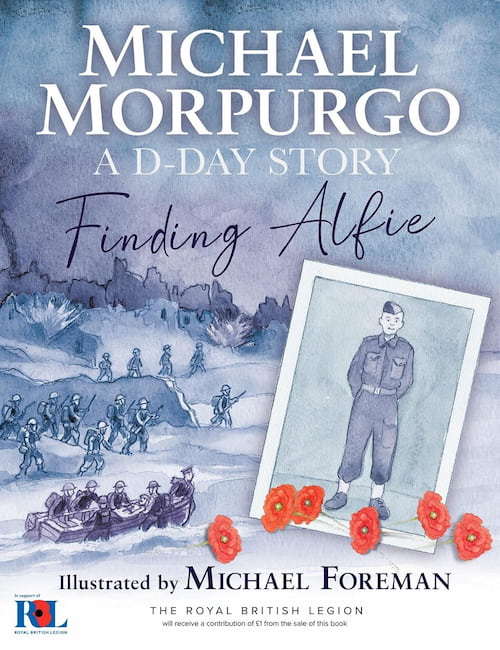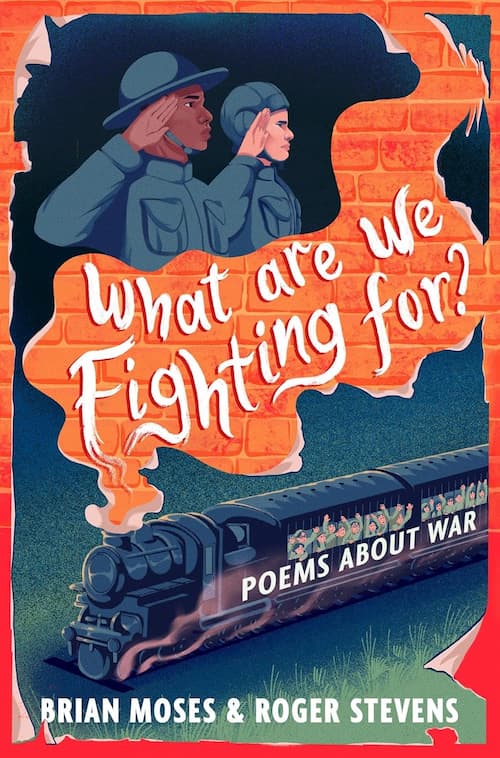Want more suggested books? Take a look at our recommendations.
Poppy Field
Michael Morpurgo and Michael Foreman
Michael Morpurgo and Michael Foreman have teamed up with the Royal British Legion to tell an original story that explains the meaning behind the poppy.
In Flanders’ fields, young Martens knows his family’s story, for it is as precious as the faded poem hanging in their home. From a poor girl comforting a grieving soldier, to an unexpected meeting of strangers, to a father’s tragic death many decades after treaties were signed, war has shaped Martens’s family in profound ways – it is their history as much as any nation’s.
Alive With Poppies
Tomos Roberts
Each autumn, a small red flower begins to appear. It flourishes at a time when others do not. But what does it mean? And why do people wear it?
Tomos Roberts’ moving poem, first performed at the Royal British Legion Festival of Remembrance in 2021, will help anyone hoping to better understand the meaning of the poppy. With stunning and powerful illustrations from Sharon Rentta, Alive with Poppies is sure to become a family favourite.
Black Poppies: The Story of Britain’s Black Community in the First World War
Stephen Bourne
In 1914 there were at least 10,000 Black Britons, many of African and West Indian heritage, fiercely loyal to their mother country. Despite being discouraged from serving in the British Army during the First World War, men managed to join all branches of the armed forces and Black communities made a vital contribution, both on the front and at home. By 1918 it is estimated that the Black population had trebled to 30,000, and after the war many Black soldiers who had fought for Britain decided to make it their home.
‘Black Poppies’ explores the military and civilian wartime experiences of these men and of women, from the trenches to the music hall.
We Will Remember Them: The Story of Remembrance
S. Williams
Every year, crowds of people come together to remember the men and women who fought and died in wars. This book explains to children why it’s so important to remember those we have lost in wars.
The sensitively written text tells of the world wars as well as other wars that are remembered at this time. We look at the history behind poppies, why we hold 1- or 2-minute silences and what happens in commemorative parades around the world. The book will include poems and quotes from veterans who bravely fought in these wars.
Where The Poppies Now Grow
Hilary Robinson and Martin Impey
To mark the centenary of the start of the First World War one of the UK’s top creative teams, Hilary Robinson and Martin Impey, have dedicated their new book Where The Poppies Now Grow to their great uncles who fell at the Somme.
Admiring of their devotion to duty, and deeply aware of the effect the deaths of their great uncles had on their grandparents’ families, they have combined their talents in a beautiful story of devoted friendship which is tested, but survives the tragedy of war.
Peace Lily
Hilary Robinson and Martin Impey
Thousands of nurses risked their lives on the battlefields and in the hospitals to care for the wounded during World War 1 and at least 1500 were killed either from disease, by accident or as a result of enemy action. Their names weren’t included on War Memorials because they were women. That is now changing.
Peace Lily pays tribute to all those brave women who helped with the war effort and brings all four stories in the series together with an uplifting ending of a new, peaceful beginning.
Flo of the Somme
Hilary Robinson and Martin Impey
‘Flo of the Somme’ pays tribute to the remarkable bravery of the animals who risked their lives during World War I. Mercy dog ‘Flo’ has more to contend with than racing across dangerous battlefields. Can she reach the injured in time with her first aid kit, and can she lead stretcher bearer, Ray, to the stricken?
Poignant, poetic text, sensitively written for a young audience with illustrations that detail significant landmarks of a battle which is recognised as one of the costliest engagements of World War I.
Archie’s War: My Scrapbook of the First World War, 1914-1918
মার্সিয়া উইলিয়ামস
Meet ten-year-old Archie, his family, and best friend in a scrapbook Archie has made himself, full of comic strips and plenty of other memorabilia. The year is 1914, and as the Great War begins, Archie’s scrapbook reflects the war’s impact on his life and on those who write back from the front.
Marcia Williams retains her humor and energy as she employs a new collage style to present an intimate and compelling view of the First World War and its era.
War Horse
Michael Morpurgo
This powerful picture book for younger readers tells the enduring story of a friendship between a boy and his horse and is a gateway to help children understand the history and deadly chaos of the First World War.
One horse witnesses the reality of battle from both sides of the trenches. Bombarded by artillery, with bullets knocking riders from his back, Joey tells a powerful story of the truest friendships surviving in terrible times. One horse has the seen the best and the worst of humanity. The power of war and the beauty of peace. This is his story.
Finding Alfie: A D-Day Story
Michael Morpurgo
On the 80th anniversary of the D-Day landings, Michael Morpurgo tells a new story about this milestone moment in British history.
Aunty Iris always treasured her small painting of a boat, painted by her close friend Alfie many years before. Her nephew, Michael, is inspired to try and find out what actually happened to Alfie in World War II. He embarks on a journey that takes him across the Channel into France, learning a profound lesson along the way about service and the surprising power of memory.
What Are We Fighting For?: Poems About War
Brian Moses and Roger Stevens
What Are We Fighting For? is a poetry collection that explores the concept of war in a brilliantly accessible way for younger readers.
Fascinating and moving in equal measure, there are poems about incredibly brave dogs, cats and pigeons; the Christmas truce of WWI when soldiers played football in No Man’s Land; poems about rationing and what it was like to be an evacuee, poems about modern warfare and the reality of war today; plus lots of amazing true historical facts.
This cross-curricular poetry book is a brilliant way to get young readers thinking about both the historical and philosophical aspects of war.

